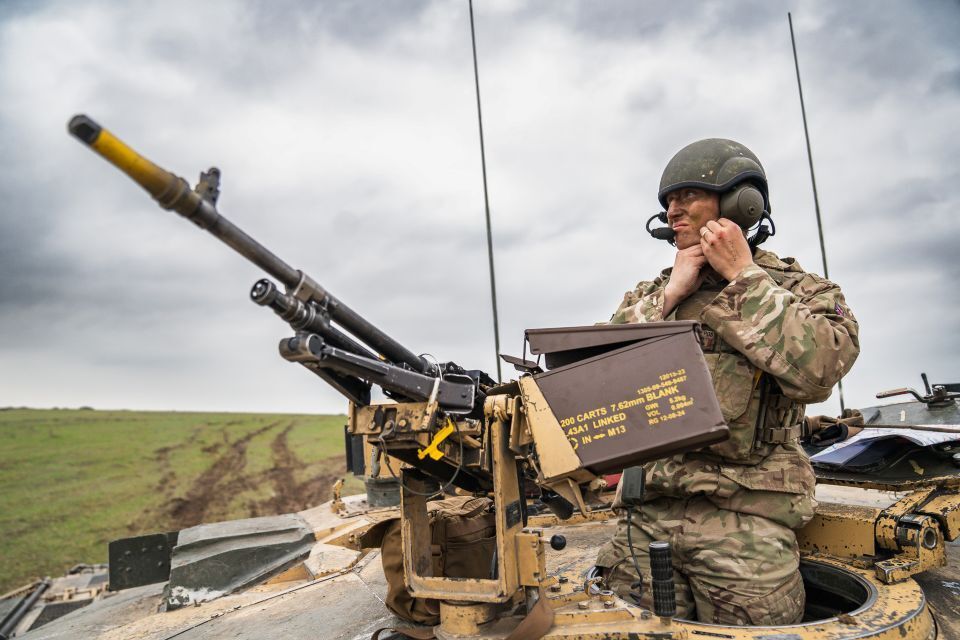Dstl report highlights implications for the military of future urbanisation
The analysts, from the Defence and Security Analysis Division, looked at a broad range of factors, including the influence of technology (including so-called 'smart cities'), climate and demographic changes, economic integration and infrastructure developments.
This work aims to build on the endorsed future vision of the Development, Concepts and Doctrine Centre’s (DCDC) ‘Future Operating Environment (2035)’ and ‘Global Strategic Trends (2050)’, both of which highlight urbanisation as one of the principal challenges facing Defence in the future. This report attempts to bridge the gap between these future predictions and our current doctrine which is based on our present understanding of cities.
The output from this report will help the UK military to determine where there are significant challenges on the horizon; therefore allowing them to examine potential options to mitigate or better prepare for them. Urban warfare, and ‘grey zone’ conflicts, are becoming priority areas for Defence, and Dstl is looking at how Defence can adapt to overcome the challenges that urban terrain not only presents now but will present in the near future.
The Dstl report states:
'As the future operating environment is going to be increasingly urbanised, the UK military must consider this environment as a primary driver of capabilities.
'The military will likely have to change its roles and structure to reflect the growing prominence and changing nature of the urban environment.'
As well as studying the future landscape, Dstl is also leading on a number of projects looking at innovative tech to answer some of the challenges of urban warfare. Working in partnership with industry and with US, Canadian, Australian and New Zealand colleagues, prototypes including remote sensing, exoskeletons for soldiers, and mini-drones are being tested. The Future Cities report is helping to shape this experiment so the technologies are being tested against these future challenges.
A Dstl spokesperson said: "This report is vital for our MoD customers to understand the future of cities and how it will impact on their operational requirements and emerging doctrine."
In the area of Smart Cities, the report predicts:
- Routine online usage will no longer be confined to computers and phones. Other devices will increasingly be interconnected to one another through the Internet of Things.
- Expanding cities may make it impossible to isolate or even by-pass urban areas.
- Increasing verticality and the 'urban canyon' (as well as subterranean) will impose severe constraints on UK Intelligence, Surveillance, Target Acquisition, and Reconnaissance (ISTAR), fire and manoeuvre capabilities. Verticality also concentrates the population making them more accessible to both the UK and adversaries posing both opportunities and challenges.
The report also looks at environmental factors, such as a rise in pollution levels and rising water inequality, leading to greater sources of conflict. It also notes that changes to how people view authority are also shifting in cities throughout the world, stating: 'The different forms of governance that the UK will have to interact with could be extensive, with national, international, city, district, neighbourhood, street and even sections of buildings having their own 'legitimate' leaders with varying authorities and, potentially, conflicting roles'.
Work like this highlights the importance of Dstl to UK science for defence and security. Not only does it respond to customer demands, it also provides thought leadership across the defence and security domains.
This report is the second in a series on understanding the future urban operating environment. The first; Urban Adversaries, has already informed the Land Warfare Centre’s urban experiment and has been used at the Infantry Battle School in Brecon.
To download the report, click
here
This file may not be suitable for users of assistive technology, so to request an accessible format
(stating format require), click here:
centralenquiries@dstl.gov.uk












